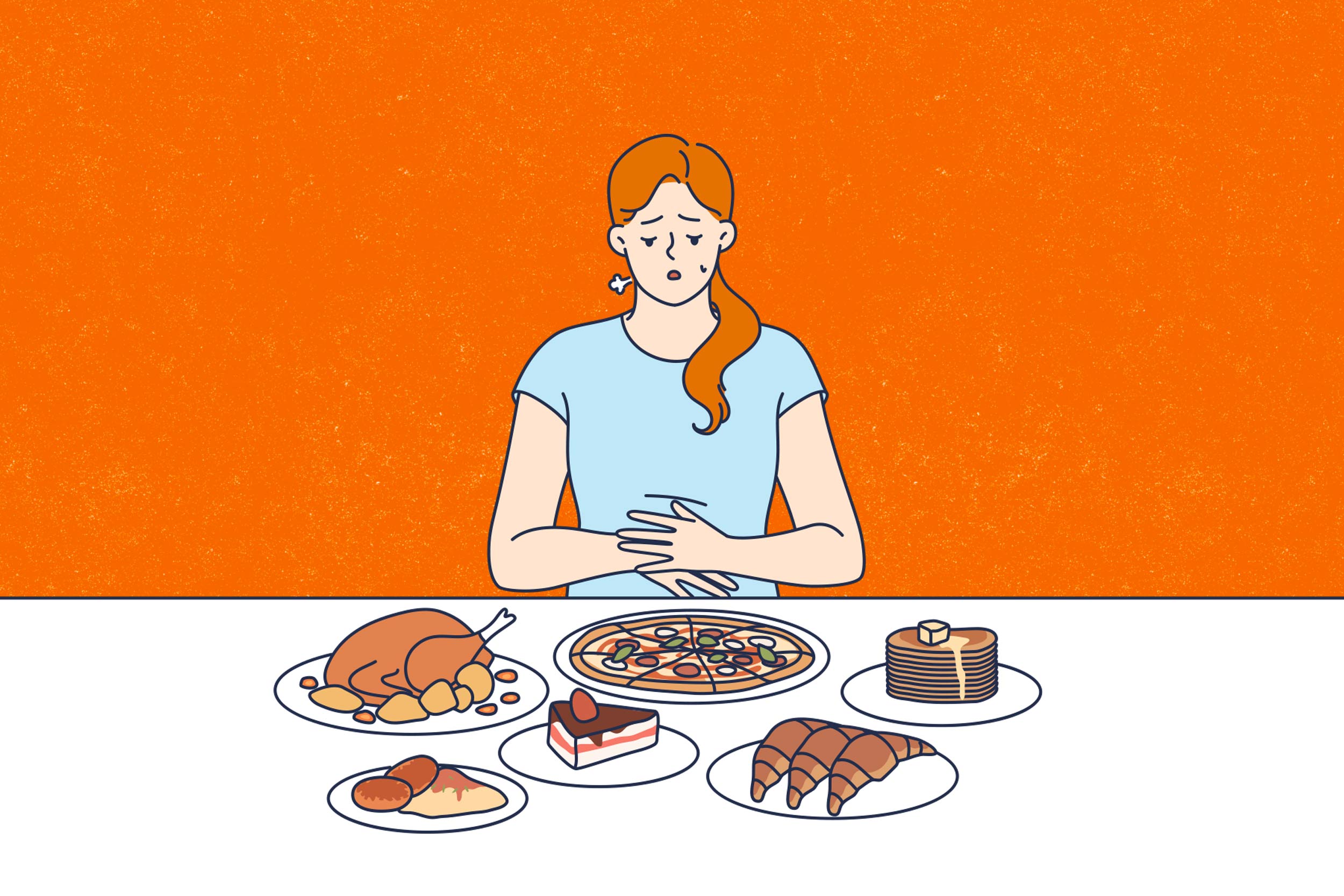From Thanksgiving to New Year’s Day, the end of the year brings with it a bevy of holiday gatherings, cookie swaps and rich meals. That’s all part of the festive fun. But it can spell trouble if you’re trying to maintain a balanced diet.
Overeating can make you feel tired, gassy and even sweaty. Over the long term, it can contribute to nutrition-related disorders like diabetes or heart failure.
It doesn’t have to be that way, though. UVA Today talked to family nurse practitioner Kelley Anderson, an associate professor at the University of Virginia School of Nursing, for tips on how to enjoy the season without overindulging.
Eat Until You’re 80% Full
Anderson advises following a Japanese saying, “hara hachi bun me,” which roughly translates to “eat until your belly is 80% full.” Doing so gives your brain time to catch up with your body so you can assess whether you need more food.
“It also helps to eat mindfully and be grateful for what you’re eating,” Anderson said. “If you’re on the phone or watching TV, you might not recognize how full you actually are.”
Prepare Balanced Meals in Advance
People often have little time to cook a nutritious meal between buying presents, handling work and family obligations, and taking part in the festivities. Making something warm and nourishing – like soup, for example – in a large batch can make it easier to eat a balanced meal as you jump between holiday events that have less-than-healthy options.
Save Your Favorite Seasonal Foods

Kelley Anderson is an associate professor at the University of Virginia School of Nursing and a family nurse practitioner. (Contributed photo)
“If there’s something you look forward to eating all year, see if you can freeze or save part of it,” Anderson said.
That way, you won’t feel forced to eat all that you can in one sitting.
Don’t Skip Meals Before a Holiday Event – But Do Eat Light
“Something like a soup or a salad is reasonable if you feel like your food intake is going to be higher that day,” Anderson said.
But skipping meals outright makes you more likely to binge at the holiday table. That, in turn, can leave you feeling sluggish and bloated or give you heartburn.
Come Up With a Way To Decline Food From Loved Ones
Some loved ones may take it personally if you decline an extra helping of mac and cheese or turn down a piece of pie. Find a way to acknowledge that you appreciate their effort while still maintaining your boundaries.
Growing acceptance for dietary restrictions, like celiac disease or vegetarianism, may make it easier to say no. But that failing, Anderson said, you can always give the food away.










